Top Stories
Elon Musk says we’re already in a recession that could last until spring 2024, and this will happen…
The world could be facing the longest recession it has seen since the global financial crisis over a decade ago, according to Tesla and SpaceX CEO Elon Musk.
Asked to predict the length of a contraction in economic activity, the world’s richest and most successful entrepreneur responded on Thursday: “probably until spring of ’24.”
This would set the U.S. gross domestic product on course to shrink for a period longer than the 18-month recession of the global financial crisis, which lasted from December 2007 to June 2009.
Painful but necessary
While these bouts are painful, Musk indicated they do serve the valuable purpose of shaking out bad business ideas by cleansing the market of so-called malinvestments.
Such poor investments gradually build in the system during boom times, as capital chases increasingly marginal profits until the incremental returns no longer justify the risk.
A key element factoring into investor calculations is the cost of money, which is set by policymakers at the world’s central banks. Until its recent shift to rate rises, the largest central bank—the U.S. Federal Reserve—had its foot on the accelerator pedal in an effort to suspend the normal dips of the economic cycle.
It is no accident then that ever since June 2009 the U.S. economy has contracted only once, for two short months, according to the National Bureau of Economic Research (NBER), the government agency that declares the official start and end dates of a recession.
Ever since the global financial crisis, policymakers have pumped unprecedented stimulus into the system to prevent a recession, mainly in form of trillions of dollars of freshly created money but also through fiscal measures such as corporate tax cuts and pandemic checks.
In such a cheap money environment, investors have been rewarded for withdrawing their savings and putting the money to work by backing new startups that promise to solve major social problems such as Theranos and Nikola Corp., or have innovative ideas like Juicero and Celsius.
It’s these same kinds of companies that invariably suffer when cheap money dries up.
Bill comes due
Noninflationary economic growth is largely a function of productivity, and cannot be achieved through sustained money printing (although “modern monetary theory”—until recently fashionable in some circles—did attempt to argue there was such a thing as a free lunch).
Eventually the bill comes due, triggering a wave of insolvencies as weak managers run out of investors willing to finance their business plans.
“Recessions do have a silver lining in that companies that shouldn’t exist stop existing,” wrote Musk.
Experts believe that point is upon us. After offering markets a buffet of nonstop cheap money, the Federal Reserve has now been forced into an abrupt reversal to cool off an overheating economy.
Less than a week ago, the newest winner of the Nobel Prize in economics, Douglas Diamond, told Fortune that the U.S. central bank held rates “too low for too long” and now risked a crash.
This year alone, the central bank hiked rates by three full percentage points, dramatically affecting asset prices for everything from stocks and housing to cryptocurrencies. As recently as the start of March, when policymakers knew inflation was running at 8%, the Fed was still expanding its balance sheet and with it the money supply.
Elon Musk himself recently expressed his disdain for the Fed, agreeing with Wharton finance professor Jeremy Siegel, who blasted Fed policymakers for making the biggest mistake in the institution’s 110-year history.
“Siegel is obviously correct,” said Musk.
Ironically one of those companies that might not have survived is Musk’s own. The CEO admitted back at the height of the stock market bubble that Tesla was “about a month” away from bankruptcy. The prime beneficiary of the 2020 pandemic rally might not have survived had it not been for the Fed’s decade-long period of ultralow interest rates and monetary stimulus.
This story was originally featured on Fortune.com

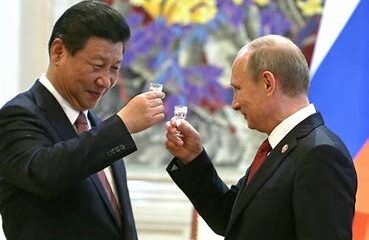
 Top Stories22 hours ago
Top Stories22 hours agoXi and Putin: The marriage of convenience that is reshaping the world order
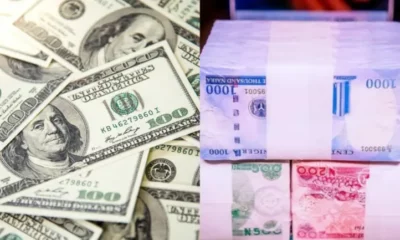
 News23 hours ago
News23 hours agoBlack Market Dollar (USD) To Naira (NGN) Exchange Rate Today 18th May 2024
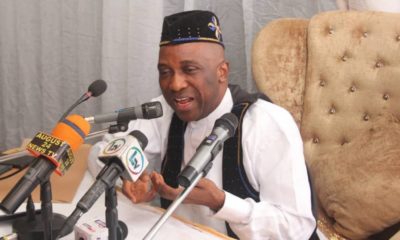
 Top Stories23 hours ago
Top Stories23 hours agoPrimate Ayodele: Tinubu Should End Fight Between Wike And Fubara Quickly
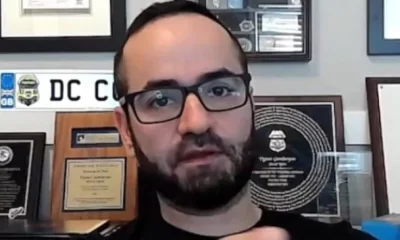
 Top Stories23 hours ago
Top Stories23 hours ago‘Tax Evasion’: FIRS amends charge against Binance, Gambaryan
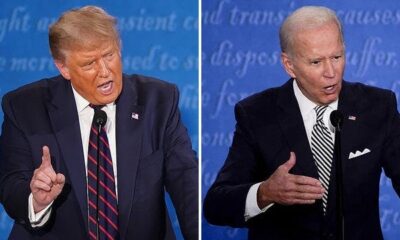
 Politics22 hours ago
Politics22 hours ago#US2024: Biden-Trump rematch is still neck and neck -New Poll Shows

 Entertainment23 hours ago
Entertainment23 hours agoYour red t-shirt dressing to the burial ceremony of Jr Pope is annoying and disrespectful – Delta state gov’s aide tells Zubby Michael

 News23 hours ago
News23 hours agoLagos Court Jails Social Media Influencer,’Keanu Reeves’ For Celebrity Scam
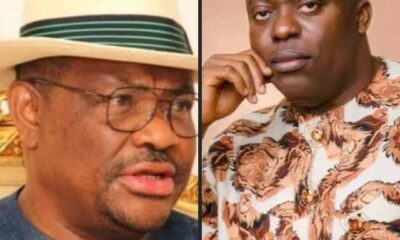
 Top Stories23 hours ago
Top Stories23 hours agoWike Vs Fubara: Rivers Elders Are Solidly Behind The Governor – Secondus






